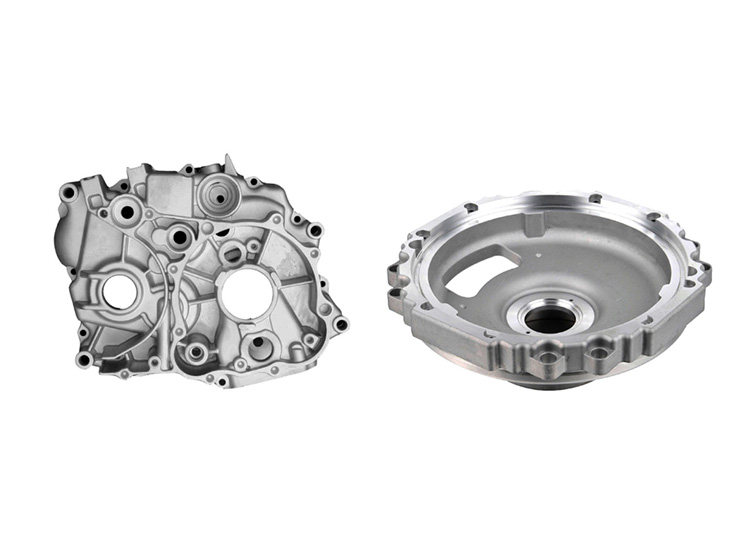The Stahl Specialty Company Statements
The Stahl Specialty Company Statements
Blog Article
The 20-Second Trick For Stahl Specialty Company
Table of ContentsUnknown Facts About Stahl Specialty CompanyGetting My Stahl Specialty Company To Work3 Easy Facts About Stahl Specialty Company ExplainedOur Stahl Specialty Company StatementsStahl Specialty Company - Questions
The refined distinction exists in the chemical content. Chemical Comparison of Cast Light weight aluminum Alloys Silicon advertises castability by reducing the alloy's melting temperature level and boosting fluidness during casting. It plays an essential role in allowing detailed mold and mildews to be filled properly. Additionally, silicon contributes to the alloy's stamina and put on resistance, making it beneficial in applications where resilience is critical, such as automotive components and engine components.It additionally improves the machinability of the alloy, making it easier to refine into ended up products. This way, iron adds to the overall workability of light weight aluminum alloys. Copper enhances electric conductivity, making it beneficial in electric applications. It likewise boosts deterioration resistance and contributes to the alloy's total strength.
Manganese contributes to the toughness of aluminum alloys and enhances workability. It is typically made use of in wrought light weight aluminum items like sheets, extrusions, and profiles. The visibility of manganese aids in the alloy's formability and resistance to splitting during construction processes. Magnesium is a light-weight element that gives stamina and influence resistance to aluminum alloys.
It permits the production of lightweight parts with excellent mechanical homes. Zinc boosts the castability of aluminum alloys and aids manage the solidification procedure throughout casting. It improves the alloy's strength and solidity. It is usually located in applications where detailed forms and fine information are necessary, such as ornamental castings and specific auto components.
All About Stahl Specialty Company
Due to the fact that aluminum-silicon alloys have excellent spreading residential or commercial properties, high gas properties, straightforward procedures, and outstanding rust resistance, aluminum-silicon alloys are most frequently made use of in the die-casting industry in your home and abroad. At the very same time, aluminum-silicon alloys are additionally reasonably very early and widely recognized alloys developed and utilized in die-casting. After continuous research and renovation, a lot of the present international mainstream aluminum-silicon alloys have actually been completed and are nothing even more than A356, A360, A380, ADC12, B390, and A413.
The key thermal conductivity, tensile toughness, return strength, and prolongation vary. Among the above alloys, A356 has the highest possible thermal conductivity, and A380 and ADC12 have the least expensive.

How Stahl Specialty Company can Save You Time, Stress, and Money.
In accuracy spreading, 6063 is well-suited for applications where intricate geometries and top notch surface area finishes are paramount. Examples consist of telecommunication units, where the alloy's premium formability allows for streamlined and visually pleasing styles while keeping architectural integrity. Likewise, in the Lighting Solutions industry, precision-cast 6063 elements produce classy and effective lights fixtures that require complex forms and great thermal performance.
(https://hubpages.com/@stahlspecialc)
The A360 displays remarkable prolongation, making it ideal for complicated and thin-walled elements. In precision casting applications, A360 is appropriate for sectors such as Customer Electronics, Telecommunication, and Power Tools.

In precision spreading, light weight aluminum 413 shines in the Consumer Electronic Devices and Power Tools markets. This alloy's superior rust resistance makes it a superb selection for outside applications, guaranteeing long-lasting, long lasting products in the pointed out sectors.
Some Of Stahl Specialty Company
As soon as you have actually determined that the light weight aluminum pass away casting process is suitable for your project, a vital next step is choosing on the most appropriate alloy. The light weight aluminum alloy you pick will considerably affect both the spreading process and the properties of the final item. Because of this, you need to make your choice very carefully and take an enlightened technique.
Establishing the most appropriate light weight aluminum alloy for your application will certainly imply considering a broad variety of characteristics. The very first group addresses alloy characteristics that impact the production procedure.
The alloy you choose for die casting straight influences several facets of the spreading procedure, like how simple the alloy is to collaborate with and if it is prone to casting issues. Warm fracturing, also understood as solidification fracturing, is a normal die spreading flaw for light weight aluminum alloys that can cause internal or surface-level tears or cracks.
Our Stahl Specialty Company Ideas
Particular light weight aluminum alloys are extra at risk to warm splitting than others, and your selection must consider this. One more common flaw found in the die spreading of light weight aluminum is die soldering, which is when the cast stays with the die walls and makes ejection difficult. It can harm both the actors and the die, so you need to try to find alloys with high anti-soldering residential or commercial properties.
Rust resistance, which is currently a significant characteristic of aluminum, can vary significantly from alloy to alloy and is a necessary characteristic to take into consideration depending upon the ecological conditions your item will important site certainly be subjected to. Wear resistance is one more home commonly looked for in aluminum products and can set apart some alloys.
Report this page